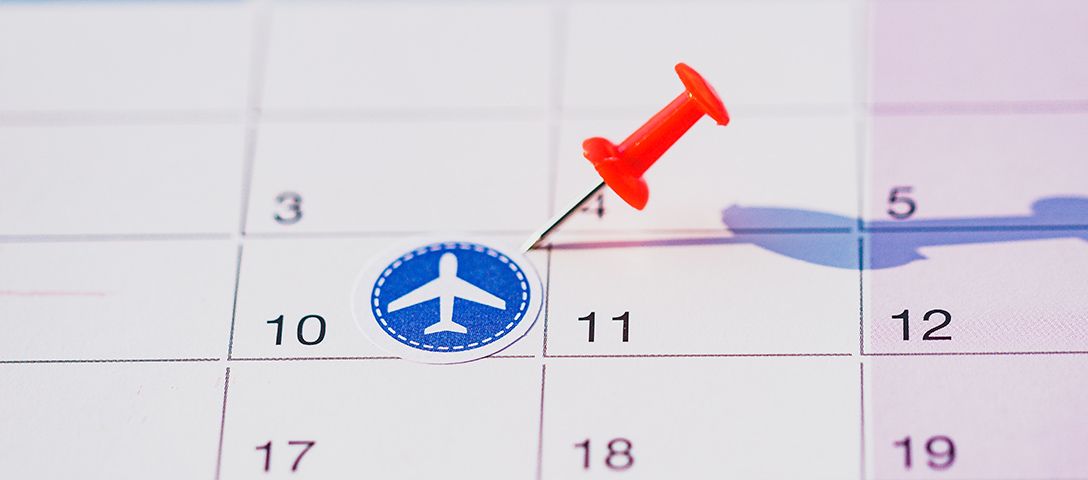Money is a sensitive topic, regardless of the situation. People who say there is no happiness in money, are just partially right, and that’s because only money can buy you a ticket to whatever place you might travel to. While you are reading the most inspiring save money for travel quotes on the web, we are ready to disclose some efficient life hacks on how to save money to travel the world.
We have divided the entire blog post in such a manner so you could distinguish the steps you will have to follow in order to make savings for travel.
Step 1: Get out of Debt
Though we should be talking about traveling in this blog post, we have to talk about finances first. Before even starting to save money for travel, you should exclusively pay attention to your debts (if you have them). Debts are a deep hole that can imprison you for a long time. And if not handled correctly, it can become a real problem.
We have prepared 5 tips on how to get rid of debt and become free again. After you reclaim your freedom, you will be able to enjoy your travel fully.
1. Build your budget
As we said earlier, you will have to keep a sharp eye on your budget overall, before you start to save up for vacation, and the first step you should take is to create a budget. A budget is your guide in watching after your expenses, thus, in monitoring your debt. If you set up a monthly budget, you have a greater chance to see where your money is going. After that, you might be able to tell what you have to determine to reduce your debt.
So, there are three types of expenses, and you may divide your income among them.
- Fixed Expenses - these are the ones you pay each month and aren’t changeable. For instance, mortgage, cable, cell phone, utilities, etc.
- Variable Expenses - these can vary month after month, and these include groceries, entertainment, eating out.
- Debt Expenses - these include credit card payments and loans.
Now that you know the structure of the expenses you have, you should correctly divide your income into these categories. This will allow you to see once and clear the spending you have in a month and the pain points of your budget, and also will help you set a correct scheme of spending your money.
First of all, set aside money for fixed expenses. You won’t be able to change something about it. So, do that first. Afterward, put aside money for debt expenses. This is a significant step, as only this way, you will be able to pay off car loans, student loans, or reduce credit card debts.
Only after you budget the fixed and debt expenses, you may set aside the rest of the money for variable expenses. If you notice that these expenses exceed your income, then you might need to reduce your spending for this category. In case you see it is not enough, you should consider reducing your fixed expenses as well. As an example, changing your cell phone plan, or getting rid of the cable (who needs it anyway when there is internet?).
One more thing, keep $100 just in case. This sum can be handy when there is an emergency.
2. Don’t use your credit card for your expenses
We all like credit cards for their convenience. You have to carry only one thing around to receive the necessary things, whether it’s a new pair of shoes, your dinner ingredients, or a plane ticket. Credit cards have become an indispensable part of our lives, and it seems like there’s no way of not being able to use them. Though it would be hard at first, you will need to stay away of using it until you pay your debt. Trust us, this is for the better.
Once you pay off your balance, you can use your credit cards again, but don’t go wild with it. It is scientifically proven that people spend more money by using credit cards than cash. That is explained by the fact that people can’t see the money. Thus, it is not valued as much, and it is hard to manage it wisely.
3. Regulate your debts
One more thing that you should do to improve your financial status is to regulate your debts. That means you have to know how deep did you get in this exactly. Gather all the statements: your loan statements, mortgage statements, credit card statements, and make a total. The sum might seem impressive, but don’t worry about it too much. If you follow all of these steps, you will certainly be able to get out of debt, no matter what sum you have.
4. Start paying off your debt from little to big
Now that you have an outlook on your debt, and you have everything set up, begin acting. Start paying off your debts from small to large. Leave the biggest sum for the last, as it will require the most time and effort. Remember the extra $100 you have in your budget? This is the time to use them. So, add them to one of the minimum payments of a loan or a credit card debt. Once you finish paying off the smallest debt, roll the amount to the bigger one, and use it as your payment.
As an example, you have to make a minimum payment of $25 to reduce your $1,000 credit card balance. With that extra $100, you will pay it off much quicker. Once you are done with it, roll the amount to your next debt. Let’s say you have to make minimum payments of $50 to pay off a car loan. So you can add $125 to $50 with no harm to your budget.
If you pay off loans quicker, the less you pay the interest rate. To simplify your understanding, here’s an example:
You have a $2,000 loan. Also, you make minimum payments of $50 monthly. And the interest rate is 10%. That will take you 3 years to pay off the loan and $200 for the interest.
If you monthly pay $175, it will take just 11 months to pay off the loan and will save over $194 in interest.
As we are not financial experts, it is better to consult a professional or at least try loan calculators.
5. Don’t rush and stay organized
As you may guess, debts are paid off quite slowly. The best thing you can do to pay off loans, balances, and other debts is to have a strategy and to follow it. Just like you’ve accumulated that debt year after year, so you have to get rid of it. In the end, you have no other choice if you want to travel n save money.
Step 2: Reduce Expenses
The next step is to reduce expenses. In the previous step, we talked about variable expenses, and as you had to pay your debt, you had to decrease this type of expense. So it is wise to keep doing it even after you paid them completely.
So, here we gathered some of the most useful tips on how to reduce living expenses that won’t bother your comfort.
- Reduce your bills - There are so many ways to reduce this type of expenses, like, turn off the lights when you don’t need them, don’t turn on the heat on maximum, see what’s your comfortable minimum, don’t use the drier frequently and hang your clothes instead. You can also change your mobile plan to a cheaper one, bundle your services, and ask for discounts in the end.
- Reduce your accommodation expenses - It may be time to consider a location change? Do the research and see if there’s a more advantageous deal on apartment rental or even a less expensive house.
- Reduce car expenses - Use your car when you absolutely need it. Downsize your car and adjust everything in it to save on fuel.
- Reduce food expenses - Eating out means spending your money fast. Thus, cook at home, and search for the best price/quality ratios at grocery stores. And remember, don’t shop when hungry!
- Cancel magazines and newspaper subscriptions - Read the hot news and follow your favorite stars online. That is also convenient as your smartphone is always with you.
Here are only some of the expenses that eat out your budget the most. Keep them under control and try reducing them as much as you can to be able to save on vacations and travel in general. Share your way to reduce living expenses in the comment section below and help other people reduce theirs too.
Step 3: Save Money and Travel
The best way to save for travel is to do it right off after you pay your debts. You can also do it while on your trip to whatever place. As an instance, you can work while on your journey and create money-saving travel. This is applicable if you stay at the destination quite much. You can also sell your belongings if you don’t need them anymore and increase your income in this way.
To keep your savings intact, you can also open a bank account specifically for this reason. Also, use a high-interest account to increase the amount of money that you are saving for a trip.
What’s for the expenses, you have at your destination, we advise you to save money on food while traveling. Cook for yourself at your place and avoid eating out too much. We don’t say to give up on trying the local cuisine, just don’t go overboard with it, especially with things you can eat back at home.
In addition to that said, we advise saving up for travel tickets. Therefore, visit Hop2.com and get the lowest fares on air tickets. Hop2 provides excellent customer support service and unbelievable cheap tickets for any customer’s convenience and delight.
Step 4: Follow the Right Money Mindset
The last but not the least step on how to save money and travel is to have the right mindset. This is essential to maintain your financial status balanced, increase your income, and reduce expenses. If you underestimate the power of money, then you are busted. If you overestimate them, then you are double busted. You should be cautious about the money you detain and willing about the money you want to make.
Dream not about the money, but dream about the travel you want to have. Money is just a way to get what you need. And if you treat them with care, you are going to receive the things you want. Make your main target the feelings you will experience when you get to the destination, and not the money itself.
And remember, the things you do for money should be enjoyable in order to get the maximum out of it. If you work with pleasure, you won’t feel like it’s hard, thus, you will be able to accomplish everything without much effort. Travel and save for another travel, and discover the entire world! We wish you good like in every goal you set and many joyful trips!
Last Updated on December 3, 2019.

